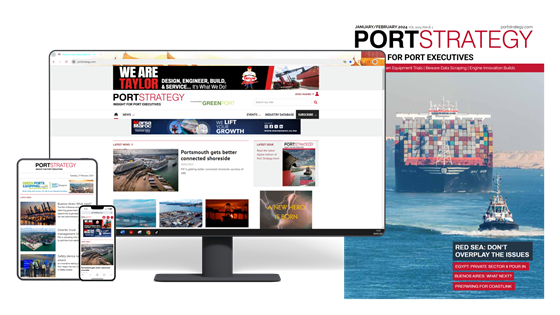Operations Header – Page 145
-
News
Preservation of people and plant
Richard Willis, an application consultant with Jade Software''s logistics division, witnessed overweight container problems in his previous job as planning and systems manager for the Port of Liverpool''s container terminal.
-
News
Declaring dangerous goods
ICHCA International is involved in the progress of a number of initiatives that are aimed at improving safety in ports.
-
News
Confined spaces warning from ICHCA
ICHCA has launched a major publicity drive on the dangers of working in confined spaces on ships after reports of a number of fatalities involving both dockers and seafarers.
-
 News
NewsDaGoB highlights safety implications of cross-border differences
Differing dangerous goods rules in European countries and even within the same countries need to be addressed. Felicity Landon explains
-
 News
NewsUS Navy invests in intelligent video system
Following the USS Cole attack in 2000, the US Navy was compelled to install intelligent surveillance systems for in-port force protection and late last year contracted ObjectVideo to develop a mast-mounted in-port video force protection surveillance system for maritime applications in crowded or hostile port environments.
-
 News
NewsSomebody's watching you
Next generation intelligent surveillance technology promises to detect security breaches before they occur. Patrik Wheater investigates
-
News
Congestion sidebar
Making sure a terminal is able to run at its peak efficiency is the first thing port operators should strive for when seeking to eliminate congestion, according to the chief operating officer of the world''s largest container shipping company.
-
News
Congestion: Problem child or golden goose?
Is the port congestion plaguing our industry a problem child or golden goose, asks Stuart Pearcey
-
News
Congestion shorts
Iron Ore port Visakhapatnam in India has banned vessels that can''t manage to load at least 1,500tph from two of its jetties. Slower rates cause congestion, say Port Authorities.
-
 News
NewsContainer Security: Is it Feasible and Who Pays?
Former US Senator Warren Rudman''s recent concerns over port security should not be taken lightly given his history as co-chair of a bi-partisan committee assigned to investigate the threat of international terrorism after the September 11 attacks and his role in setting up the Department of Homeland Security.
-
News
Smaller solutions
Many small- and medium-sized ports are still using "home-made" terminal management systems and often there is resistance to adopting new technology, claims John Holm Jensen, consultant for Denmark''s WM-data.
-
 News
NewsFeeling familiar
Terminal operating systems all look and feel fairly similar, says Dave Quennell at Jade.
-
News
Seeing the process through
The introduction of berth scheduling software at Associated Petroleum Terminals (APT) in Immingham a few years ago was not without its difficulties. Bob Law, APT''s oil movements controller, saw the process through. "Many of my colleagues were understandably sceptical," he says. "We had managed berthing operations seemingly quite well until ...
-
 News
NewsChange brings higher return on investment
Changing a terminal management system can be a very daunting task for management and staff to consider, says Michael Schwank, president of Tideworks Technology.
-
 News
NewsMaking the jump
Too risky to stay with the old, or too risky to move to the new? Felicity Landon investigates the challenges of switching from one terminal management system to another
-
 News
NewsEncouraging Gaia to slow down (amended)
Despite being more environmentally-friendly than other transportation sectors, the shipping industry continues to lessen its environmental impact, as Patrik Wheater finds out
-
News
Ports could benefit from CO2 indexing
Carbon dioxide emissions are becoming a major issue and talks are already under way to establish a CO2 emission certificate trading system for shipping. First though, the International Maritime Organisation (IMO) has been tasked to develop a CO2 index for ships which would form the basis of any future CO2 ...
-
 News
NewsCoal: fuel for the future
A 180% increase in seabourne traded coal over two decades has spurred the world''s dry bulk ports into action, as Stuart Pearcey finds out
-
 News
Newssidebar for coal
Continuing increases in shipped coal volumes have led Italian company Coeclerici to think outside the box and create a means of expanding ports seawards rather than landwards.










